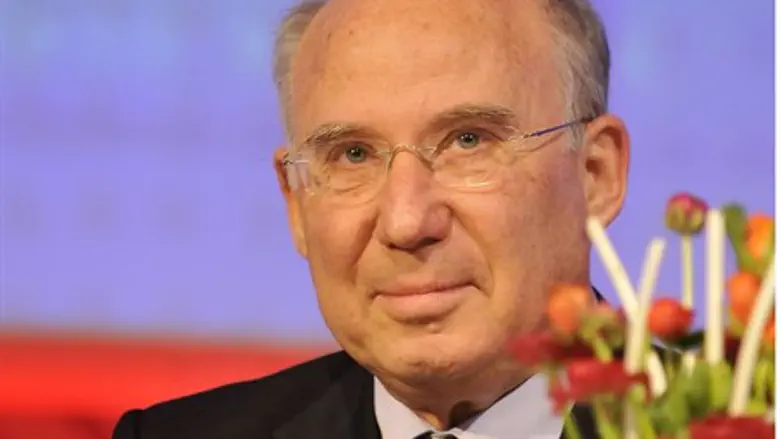
Israel’s Bank of Israel kept the country’s prime interest rate unchanged at 1.25 percent for the month of July in an announcement that saw the country's leadership express pride and praise for outgoing BOI Governor Stanley Fischer, and incoming BOI Governor Professor Jacob Frenkel.
Fischer expressed his satisfaction with Frenkel’s selection as his successor, saying the two have known each other for 43 years. “He was an exceptional governor, a governor who changed the structure of the financial markets and monetary policy,” Fischer said. “We are lucky that Jacob accepted the job,” he declared. “He will do everything, he will honor Israel at international meetings and conferences.”
“We are in a changing economic reality,” noted Prime Minister Binyamin Netanyahu, adding that Israelis “need to adapt ourselves to its challenges. We have been in such a reality.”
Netanyahu referred back to his first term as prime minister, years ago, when he made a decision that “Jacob Frenkel very much supported. It had many opponents and that decision was to open the currency markets.
“You need to imagine a situation in which you could leave only with a fistful of dollars, like Clint Eastwood, and return with a fistful of dollars, and be under a bureaucracy that in effect did not allow currency either in or out of the State of Israel.”
That decision, decades ago, said Netanyahu, made it possible to “imagine the rapid growth of the Israeli economy. I am pointing this out because today as well we are in a very, very fluid and dynamic reality, not always for the good, and we will need both to enact structural changes in the economy and enjoy monetary stability. These are vital for ensuring our economic future.”
The prime minister added his contention that opening the Chinese market will be essential to such a future.
Finance Minister Yair Lapid, who made it clear he strongly supports Frenkel’s selection for governor, said, “It is the correct choice. We are pleased with it and we are satisfied with it.”
Frenkel himself thanked “the team,” but warned, “it will not succeed if there is no harmony, cooperation and mutual understanding.
I am sure that we have this understanding on goals,” he added, “and it will be a historic injustice if we do not achieve them in full, and the potential, at least between the members of this orchestra and the conductor, exists.”